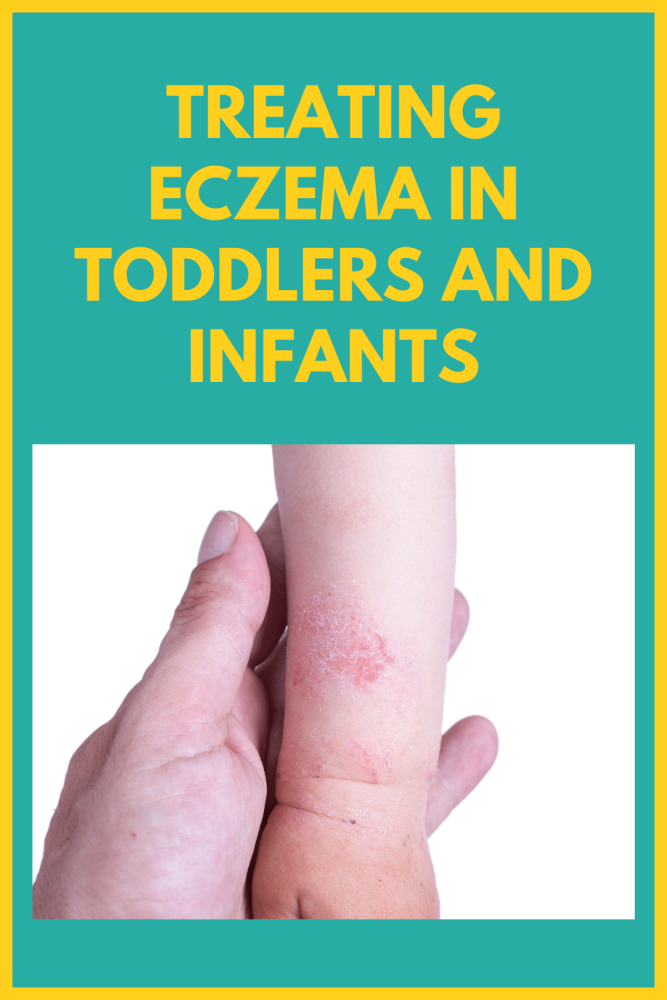Treating eczema in toddlers and infants
Posted on
If your child has eczema, it's important that you find the best medication for them. Atopic dermatitis can cause discomfort, and your child might also find it hard to concentrate in school. So if you're here to figure out how to treat eczema in toddlers and infants, you have come to the right place. But first, let's define this stubborn skin complication.

What is eczema?
Eczema, also known as atopic dermatitis, is a common skin condition that causes itchy patches and inflammation. There're many forms of dermatitis, and some of them might cause blisters on the skin. Now, let's find some of the best ways you can help your infants or toddlers struggling with eczema.
Best atopic dermatitis solution for kids and toddlers
1. Use topical medications
Once you notice that your loved one has eczema, it's advisable to commence treatment as soon as possible. But you can't just use any skincare product you come across. The best way to handle the situation is by applying topical medication. Many topical medications might work, but before choosing a product to use, be sure to check out its ingredients. Your doctor can also help you pick medications that can alleviate the symptoms of the skin condition which are sensitive to your child’s skin. Also, you should understand that what works for one person is not guaranteed to help your child, so you need to take your time and do your research.
2. Use a moisturiser
Eczema is a common skin condition and there are many ways you can help to prevent eczema flareups or control them. Skin moisturiser can help your child with atopic dermatitis symptoms. Since eczema can cause the skin to itch, it's important to keep your child's body moisturised. By doing that, the itching might stop, and the affected areas won't keep spreading. But, again, you can't just use any skin moisturisers you come across.
If your child has eczema, the chances are they also have sensitive skin. In that case, you should be careful what you apply to their skin. Some products contain chemicals that might react negatively with the child's skin, thereby enhancing the severity of the condition. Remember to moisturise your child's skin when they're about to go to bed as well.
3. Patting the skin dry
After you have started the treatment process, you should pat your child's skin dry before applying the topical medication. If the skin is wet and you apply the products on the skin, the ingredients won't work because they will not be absorbed into the skin.
However, when patting, don't rub the skin too hard as this can cause further irritation to the sensitive skin and make it easier for bacteria to find their way into the skin and cause infection. Thus, when patting, use a soft piece of cloth to make sure the skin is dry before using any medication.
4. 10-minute bath
As you strive to restore your child’s health, you need to bathe them for at least ten minutes each day and be sure to use non-soap detergents. Use lukewarm water to clean your child, and remember to use clean water to avoid worsening the infection.
Your detergent should be made of natural, powerful ingredients that can help fight germs and alleviate the symptoms of atopic dermatitis. Consider asking an expert to help you choose the right non-soap detergent to use for the condition.
5. Dress child in soft fabrics
If your child is already struggling with itchy skin, you don't want to make life even harder for them. Thus, consider dressing them in soft, natural fabrics so that they don't feel like scratching their skin quite often. If you can find cotton, then that would be great, especially when it's cold outside.
6. Find the root cause of the eczema
The best way to treat eczema is to identify the root cause of the problem and then treat it accordingly. Eczema can be caused by certain allergies or an allergic reaction to something in your environment like chemicals or detergents. If you suspect that your child may be allergic to something in their environment, try removing it from their surroundings for 3-4 weeks and see if their eczema improves.
7. Cut out dairy, a common trigger of eczema
Dairy products can cause eczema in many people due to a protein found in milk called casein. This protein is found in cheese, yoghurt, butter, and other dairy products. It's not just a coincidence that eczema rates increase as more people start consuming dairy products. There are many ways in which dairy could cause eczema, including the proteins in milk, lactose intolerance, and other unknown reasons.
The best way to find out if dairy is causing your eczema is to cut it out of your child’s diet for a few weeks. If you notice an improvement in your skin, then you know that it might be the cause of your eczema. The dairy industry is one of the most profitable industries in the world. The industry has been able to thrive by convincing people that milk and milk products are healthy and necessary for a healthy diet. Unfortunately, this isn't true and you can lead a perfectly healthy lifestyle without dairy or other animal products.
Conclusion
Does your child have eczema? Then we believe the tips above can help you handle the situation. However, if you use a moisturiser, but it only makes the problem worse, then you should try other products or speak with an expert.


